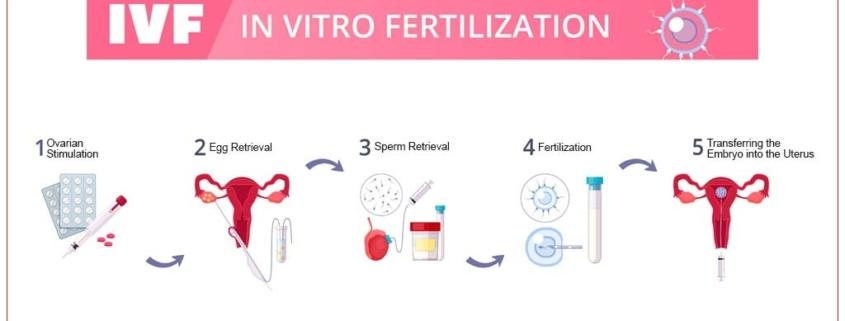What are the Five Stages of IVF?
Five Stages of IVF – Life becomes even more blissful and fulfilling with the appearance of two pink lines on the pregnancy testing kit. These two lines bring a wave of emotions you have never experienced. But due to numerous physical, physiological, and environmental reasons, some couples can not conceive naturally. Medical advancements over the years have helped overcome this hurdle with Assisted Reproductive Technology (ART).
In-vitro fertilization, or IVF treatment, is the most trusted medical procedure that helps infertile couples trying hard for a baby but cannot do so.
However, before going for IVF treatment in Srinagar, it’s essential to prepare yourself by becoming familiar with the five stages of IVF Treatment.
Five Stages of IVF
IVF is a highly complex medical procedure that involves the following five stages of IVF-:
Pre-cycle Testing:
Before IVF treatment, the male and the female must undergo various tests like pelvic examination and transvaginal ultrasounds.
The fallopian tubes and uterus are carefully examined for any issues requiring a diagnosis. It is also known as ovarian reserve testing or fertility testing, which includes detecting sexually transmitted diseases, blood tests for hormonal imbalance, semen analysis, thyroid function, and ovarian reserve.
Stage 1: Ovarian Stimulation and Ovulation Triggering
A woman’s ovaries are home to thousands of ovarian follicles. Each follicle contains an oocyte which is an immature egg cell. Stimulation of the ovaries is the process that prepares the ovaries to produce these eggs. The more eggs, the more favourable the outcome and success rate!
To increase the shares of success, the woman is on hormone medication for 8-14 days. These medications are given as pills, patches, and injections that act on the ovaries to produce or overproduce eggs for fertilization. Also, these medications prepare the uterine lining for pregnancy. On average, 15-30 hormonal medicines in the form of injections are administered to the female.
These IVF injections happen to be quite expensive. The cost of IVF injections and medications for ovarian stimulation is around 60,000-80,000 INR.
Stage 2: Egg Pick Up (EPU) or Egg retrieval
The egg retrieval process consists of using a needle, which is performed under general anaesthesia. As is clear from the name, this stage involves the collection of eggs from both ovaries. It is performed 34-36 hours after the last medication dose or trigger shot. The vagina is adequately cleaned, and the fertility expert correctly examines the ovaries through ultrasound before this stage.
EPU is achieved with the help of transvaginal ultrasounds in which a needle is connected to a suction device. Through the vagina, this needle makes its way into each ovary. The egg (oocyte) is collected from each follicle as the needle enters the ovaries. It takes about 15-30 minutes to retrieve an egg. These retrieved eggs are stored to fuse with sperm harvested from the male.
Stage 3: Sperm Retrieval
The sperm from the male are harvested two-three days before fertilization or on the day of retrieval of eggs.
The various methods available to retrieve sperm from the male are stated below:
- Testicular Sperm Aspiration (TESA)
- Testicular Sperm Extraction (TESE)
- Microdissection TESE (microTESE)
- Percutaneous Epididymal Sperm Aspiration (PESA)
- Micro Epididymal Sperm Aspiration (MESA)
Stage 4: Fertilization
IVF treatment typically involves the manual fertilization of eggs with sperm ejaculated by the male partner. The necessary condition for fertilization is that the eggs must be mature. The retrieved eggs are examined for mature eggs.
In this stage, the sperm is injected into the eggs collected during stage 2 with the help of Intracytoplasmic Sperm Injection (ICSI) or through conventional fertilization, where the sperm and eggs are placed on a small dish where the sperm is allowed to fuse with the egg on its own. Fertilization is carried out 3-5 days after the retrieval of eggs at a clinic or doctor’s office. The ICSI IVF cost may vary from one fertility centre to another.
Stage 5: Transferring the Embryo into the Uterus
3-5 days after the successful completion of EPU, embryo transfer is carried out. During this stage, a long, thin, and flexible tube is allowed into the vagina, which enters the uterus. The tube is coined as a catheter. The catheter carries a syringe consisting of one or more embryos. One of the embryos is finally placed in the uterus. If the embryo gets successfully implanted in the uterine lining, it will result in a pregnancy.
Embryo transfer takes up to 5 minutes and is performed without anaesthesia as it’s a painless procedure.
After this stage, a pregnancy test is undertaken by the woman after ten days. The pregnancy test is repeated after 7-8 days. The IVF treatment is successful if two pink lines appear on the pregnancy test kit.
Conclusively, IVF treatment takes about 6-8 weeks (45-60 days).
Should you return home and continue your daily activities after IVF treatment?
A common question may strike a couple’s mind after IVF treatment is completed. The answer is plain and simple, yes. There’s no need for strict bed rest after IVF.
It’s for the best that you carry on with your daily activities to keep your mind occupied. Staying positive is the key to turning your IVF cycle successful.
The Success Rate and Cost of IVF Treatment in 2023
The success rate of IVF treatment depends on an array of factors. The success rate of IVF treatment lies between 30-40% for women below 35. For women above 35, the success rate decreases and is witnessed to be around 20-30%.
The average IVF treatment cost, including medical tests, drugs, and the entire process, lies between 1,50,000 to 2,50,000 INR.
The cost of IVF treatment will vary according to the type of IVF treatment, number of cycles, medical tests during IVF, geographical location, and success rate of the fertility centre.
Potential Risks and Complications of IVF Treatment
Even though IVF treatment has one of the highest success rates among all other reproductive treatments, it also has potential risks and complications that a couple must be aware of.
Some of the most common risks and complications of IVF treatment are stated as follows:
- Multiple Pregnancies-: Sometimes, the IVF cycle can result in multiple pregnancies, which can lead to low birth weight and early labour and, in some cases, pose a threat to the life of both the mother and the babies.
- Ovarian Hyperstimulation Syndrome (OHSS)-: The medications given during the first stage of IVF to stimulate the ovaries to produce more eggs can sometimes result in overstimulation. This overstimulation of ovaries due to medications like human chorionic gonadotropins (HCG) may result in bloating, vomiting, diarrhoea, swelling of the abdominal region, and nausea. This condition is known as Ovarian Hyperstimulation Syndrome (OHSS).
- Premature Births-: The IVF procedure can also increase the risk of early labour and premature births.
- Ectopic Pregnancy or Extrauterine Pregnancy-: In an ectopic pregnancy, the fertilized egg, instead of getting implanted along the uterine lining, will get implanted somewhere else, like the fallopian tube. Data shows that around 2-5% of women are seen to have ectopic pregnancy after undergoing IVF treatment. If ectopic pregnancy occurs, the couple can not carry the pregnancy to term.
- Emotional fatigue-: IVF treatment is more of an emotional ride for a couple, especially a woman. Since the success rate of IVF is around 30-40% only, fear of failure always lingers in a woman’s mind.
A plethora of times, a couple has to undergo more than one IVF cycle. As mentioned, each IVF cycle can take up to 45-60 days. It can build up negative thoughts about conceiving and take a toll on a couple’s mental health.
Bottom line
Five Stages of IVF – IVF treatment is advised for infertile couples who have tried other ART techniques or have had multiple failures. Couples considering IVF treatment must consult the best fertility centre, like Imprimis IVF, Srinagar, for the best consultation. Since IVF is a complicated process, fertility centres like Imprimis IVF also help ensure a maximum success rate.










